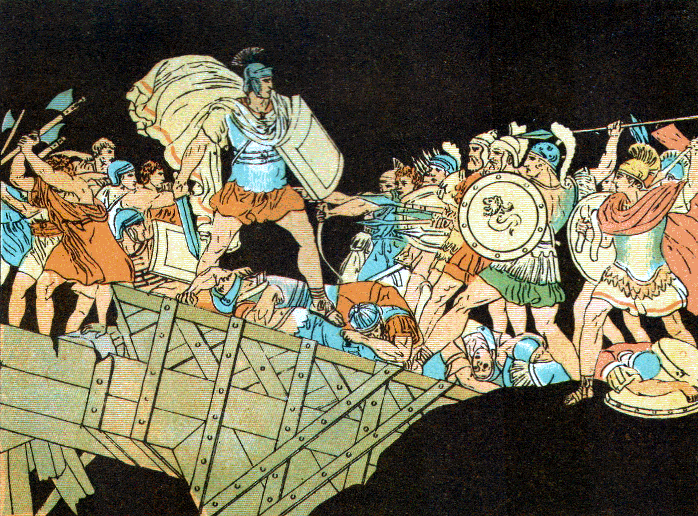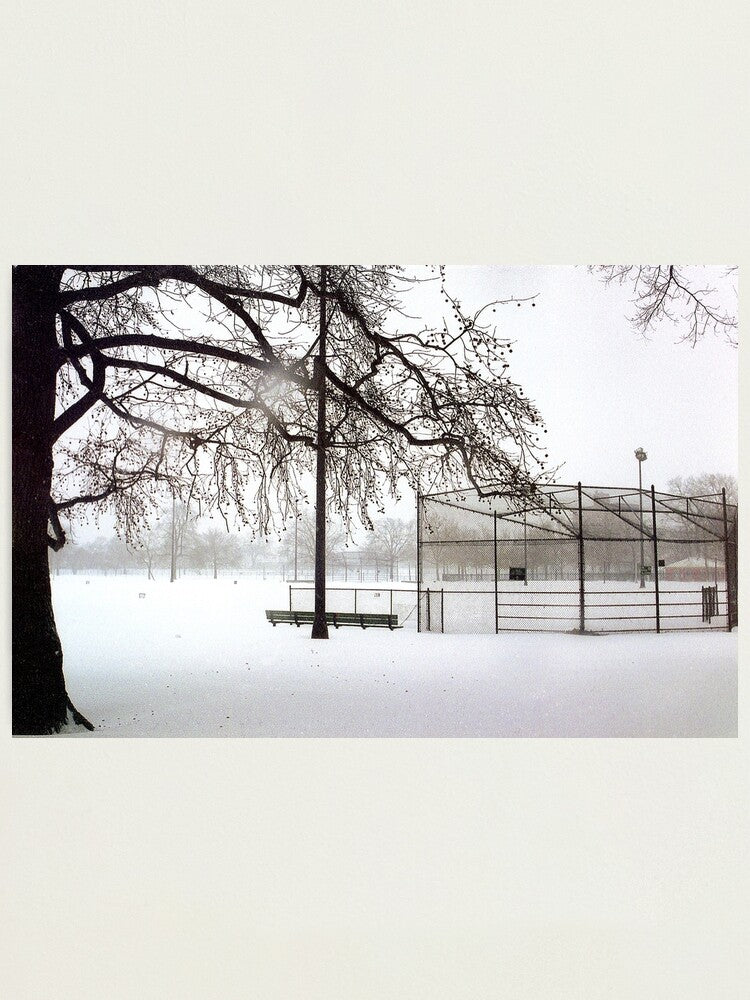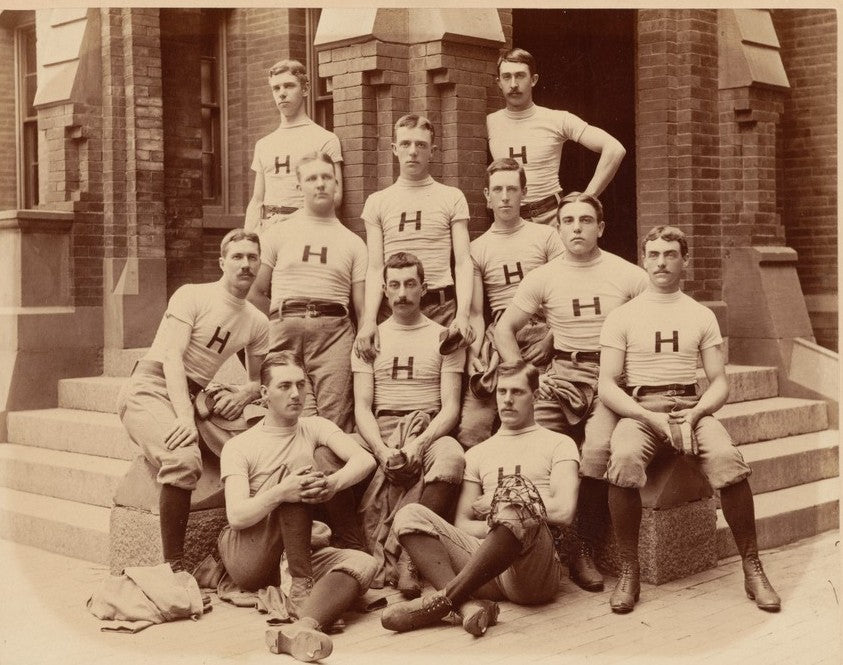
Misappropriation of the Classics, Part II: Horatius Reawakened
On December 11 of last year, Caseyatthe.blog called out the misleading and "pernicious misappropriation" of an ancient Roman legend by right-wing propagandist Steve Bannon, who at that time was exhorting his radio listeners to "fight and die" to assure the continuation of Donald J. Trump in office. (See Misappropriation of the Classics: "Horatius" Reclaimed, December 11, 2020 ). Our warning at that time:
The spreading of misinformation of this sort is not just a literary or academic foray," [we wrote]. "Because..Steve Bannon has been the Svengali whispering from the shadows that traditional norms and practices of American democracy can be subverted, that legally-cast votes in America's recent election can be ignored or perverted by state legislatures, and that a handful of legislators in swing states can replace American democracy with a form of autocracy--based on an atavistic principle of minority rule.
Since January 6 of 2021, Americans have been tragically reminded of the fact that words matter. That lies are dangerous and when unchecked can lead to violence. And that even ancient legends, though twisted by the necromancy of propagandists to mislead the multitudes, can re-emerge in unexpected ways to assert their truths with startling clarity.
Such was the case with the legend of "Horatius" recounted by Roman historians of the Augustan age, later revived and versified by British parliamentarian Thomas Macaulay in the 1840's. Steve Bannon indeed had summoned the spirit of Horatius to emerge within the bloody melee at the U.S. Capitol on January 6. Except that the spirit so evoked rose not to demolish the traditions and institutions of the American Republic, as Bannon and his associates had planned[1], but rather to defend and protect those traditions--established by the U.S. Constitution--which the insurrection sought to overturn.
Eugene Goodman and Brian Sicknick

Capital Police Officer Eugene Goodman holding the insurrection at bay on January 6, 2021. Thanks to Goodman's clear-headed intervention, rioters on January 6 did not gain immediate entrance to the Senate, where Electoral College ballots were being recorded and Senators and Vice-President Pence were being evacuated
Steve Bannon likely had never heard of Eugene Goodman or Brian Sicknick. Each of these men, members of the U.S. Capitol Police force, in had previously served overseas -- Goodman with the 101st Airborne Division, Sicknick with the New Jersey Air National Guard. Each in the service of their country had attained the rank of sergeant. Upon enlistment, each had taken the oath to "...support and defend the Constitution of the United States against all enemies, foreign and domestic; that [they] will bear true faith and allegiance to the same."
In the attack upon the U.S. Capitol on January 6, Officer Goodman was able to rely on his combat experience in Iraq. As the mob gained entrance to the Capitol, spreading malice and mayhem throughout the corridors, Goodman found himself confronting a column of insurrectionists at the bottom of a staircase leading up toward the Senate chambers. Keeping his focus upon a man sporting a QAnon t-shirt at the head of the intruders, Goodman backed up the stairs while securing his communications to back-up officers on an upper floor.

Was he acting on instinct, or simply keeping his head in the moment of crisis? Officer Goodman, avoiding unwanted publicity, has not revealed his thoughts as he backed up the staircase followed by the hostile mob. In videos we have seen Goodman glance to his left at the unguarded door to the Senate chambers as he reached the first landing. Only seconds before, Vice-President Pence and his family had escaped through those doors to the office across the hall.
Insurrectionists carrying plastic restraints and a hangman's noose, shouting "Hang Mike Pence" as they forced an entrance to the Capitol, had left little doubt that they regarded the admonition to "fight like hell" from the rally at the White House as something other than metaphor. In the midst of this mayhem, in a tweet from the White House the man who had enjoyed Pence's unfaltering loyalty for four years taunted the Vice-President with charges of cowardice.

Senate interns repacked the electoral ballots in their leather-bound chests preparing to evacuate them to safety
Inside their chamber, Senators were being ushered toward an escape route. Interns repacked the electoral ballots in their leather-bound chests, preparing for evacuation. Simultaneously we witnessed Officer Goodman pushing back his foremost challenger, antagonizing the cultist enough to provoke further pursuit. Anticipating victory, the rioters pursued Officer Goodman up a second flight of stairs. But on arriving at the next level the rioters were promptly subdued by a well-armed back-up force.
Steve Bannon has since received a presidential pardon in acknowledgment of his role in promoting the fiction of a "stolen election," and for his alleged participation in other frauds and crimes for which he and accomplices are still being investigated. Bannon may yet face an accounting for such activities from the State of New York, but until that time he is free to promote his services to the highest bidder--whether foreign or domestic.

Officer Brian D. Sicknick, U.S. Capitol Police (1978-2021)
The remains of Officer Brian Sicknick, however, would repose in the Capitol rotunda before being laid to rest in Arlington National Cemetery on February 2. Officer Sicknick had succumbed to injuries sustained in combat against members of various gun-toting militias, white supremacists, QAnon conspirators, unreconstructed old-South Confederates, KKK, Nazis, Proud Boys, and other related gangs embracing mayhem and violence as both means and end. While the FBI is dedicating significant resources to bring Brian Sicknick's murderers to justice, it is uncertain whether Steve Bannon, his fellow conspirators, or his former employer at the White House will be held accountable for inspiring and promoting the events leading to Officer Sicknick's murder--nor for the injuries, including serious injuries--sustained by more than 50 other officers.
In a joint statement, the Speaker of the House and the Senate Majority Leader wrote,
"The heroism of Officer Sicknick and the Capitol Police force during the violent insurrection against our Capitol helped save lives, defend the temple of our democracy and ensure that Congress was not diverted from our duty to the Constitution. His sacrifice reminds us every day of our obligation to our country and to the people we serve."
Minority Leader McConnell further condemned “...the criminals who masqueraded as patriots [who] have the blood of law enforcement on their hands...The entire Senate grieves the death of this officer who literally put himself on the line to defend our first branch of government and everybody who works inside it."

From Caseyatthe.blog posted December 11, 2020:
...Let's be clear about the use and misuse of the legend of "Horatius." The legend represents a memory of the defense of Rome's infant Republic against the power of tyranny. "Horatius" stands for the defense of a community insisting on self-government under the res publica -- a commonwealth of law rather than a kingdom dominated by the dictates, rages, or avarice of an overlord. Certainly people have risked their lives to defend the American Republic--and patriots may be called upon in the future to defend the Republic with their lives. But it is a perversion of both history and legend to call upon citizens to die (and by inference, to kill) in a desperate attempt to sustain a position and power which the American people, by the deliberate exercise of their right to vote, have withdrawn from a president whose time in office is finished.
The Spirit of Horatius
Dimly perceived through the mists of time, there was once a real Horatius whose bold defense of a wooden bridge against Etruscan armies was remembered four centuries later in the wistful longing of an empire for the glories of its ancient Republic. During the European Renaissance and the Enlightenment, through the revolutionary and Romantic decades of the 19th century-- even into the 20th century--the legend of Horatius inspired generations of painters, muralists, and engravers. As a struggling student at Harrow in the 1880's, Winston Churchill memorized Macaulay's ballad. He would later quote it during the war against Hitler to lift up his embattled nation. We know that the heroic example of Horatius has had the power to inspire generations of schoolchildren, citizen-soldiers, poets, and writers who admired the Roman captain's daring initiative to hold the narrow bridgehead against overwhelming odds.
 In Macaulay's version of "Horatius," the Roman captain plunged into the Tiber as the bridge collapsed behind him
In Macaulay's version of "Horatius," the Roman captain plunged into the Tiber as the bridge collapsed behind him
In his preface to "Horatius," Thomas Macaulay admitted that Roman historians had recorded two distinct--and contradictory--endings to the legend of "Horatius at the Bridge," as the story became known in America. In the first (and in Macaulay's version), Horatius committed himself to the care of the River God and leaped into the Tiber--and though wounded manage to swim to the embrace of his countrymen on the Roman shore. In a second, more believable version, the Roman hero defended the crossing against the Etruscan assault but perished in the attempt.
And reflecting the implacable dichotomies of violence, separate fates were dealt to Capitol Police officers Goodman and Sicknick, each imbued with the spirit of an ancient Roman hero.

Insurrectionists assault the U.S. Capitol, January 6, 2021. Image credit: Reuters
The attack on the temple of the American Republic has shocked our citizens into realization that democracy is fundamentally premised upon a peaceful transfer of power from one president to the next. And for only the second time in its long history, the marble precincts of the temple of American democracy have echoed the sounds of warfare (in 1954, Puerto Rican nationalists had opened fire from the House gallery, wounding five representatives).

But let there never be another such event. Let the spirit of Horatius arise, whether summoned purposefully by the guardians of the Republic or erroneously by its foes, whenever the citadels of democracy are threatened by those who scorn the laws, customs and ceremonies by which we elect our office-holders -- including our presidents. And--regardless of our affiliation with a political party--let us not ignore or forget the bitter lessons of January 6. Now we understand why our legislators, federal officers, and members of our armed forces take the pledge to defend our Constitution against all enemies, foreign or domestic.

Image Credit: Harun Tan via Pexels
(1) Will Streakin, Matthew Mosk, James Gordon Meek, Ali Dukakis (ABC News), "Longtime Trump advisers connected to groups behind rally that led to Capitol attack," January 15, 2021.
Cover Image: "Horatius on the Bridge," Bartolomeo Pinelli, 1781-1835

#uscapitol #uscapitolviolence #uscapitolbreach @ProjectLincoln @TheRickWilson @TheRomanSoc @romanhistory1 @SaveRome


1 comment
This is fascinating. I enjoyed this!
Steve
Leave a comment
This site is protected by hCaptcha and the hCaptcha Privacy Policy and Terms of Service apply.